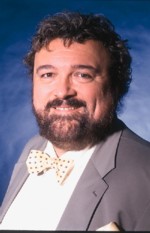Buying flowers for your girlfriend or spending the money to upgrade your RAM is a moral dilemma.
Dilbert is your hero.
Everyone else on the Alaskan cruise is on deck peering at the scenery, and you are still on a personal tour of the engine room.
In college you thought Spring Break was a metal fatigue failure.
On vacation, you are reading a computer manual and turning the pages faster than someone else who is reading a John Grisham novel.
People groan at the party when you pick out the music.
The blinking 12:00 on someone's VCR draws you in like a tractor beam to fix it.
The only jokes you receive are through e-mail.
The salespeople at Circuit City can't answer any of your questions.
The thought that a CD could refer to finance or music never enters your mind.
When you go into a computer store, you eavesdrop on a salesperson talking with customers and you butt in to correct him and spend next twenty minutes answering the customers' questions, while the salesperson stands by silently, nodding his head.
You are able to argue persuasively that Ross Perot's phrase "electronic town hall" makes more sense than the term "information superhighway," but you don't because, after all, the man still uses hand-drawn pie charts.
You are at an air show and know how fast the skydivers are falling.
You are aware that computers are actually only good for playing games, but are afraid to say so out loud.
You are convinced you can build a phazer from your garage door opener and your camera's flash attachment.
You are currently gathering the components to build your own nuclear reactor.
You are next in line on death row in a French prison and you find that the guillotine is not working properly so you offer to fix it.
You are wine tasting and find yourself paying more attention to the cork screws than the '84 Chardonnay.
You bought your wife a new CD ROM for her birthday.
You can name at least six Star Trek episodes.
You can quote scenes from any Monty Python movie.
You can type 70 words a minute but can't read your own handwriting.
You can't fit any more colored pens in your shirt pocket.
You can't remember where you parked your car for the 3rd time this week.
You can't write unless the paper has both horizontal and vertical lines.
You carry a list for everything except the groceries.
You carry on a one-hour debate over the expected results of a test that actually takes five minutes to run.
You comment to your wife that her straight hair is nice and parallel.
You disdain people who use low baud rates.
Your car has a "Beam me up Scotty" bumper sticker.
You ever burned down the gymnasium with your science fair project.
You ever forgot to get a haircut ... for 6 months.
You find yourself at the airport on your vacation studying the baggage handling equipment.
You go on the rides at Disneyland and sit backwards in the chairs to see how they do the special effects.
You have a functioning home copier machine, but every toaster you own turns bread into charcoal.
You have a habit of destroying things in order to see how they work.
You have ever debated who was a better captain: Kirk or Piccard.
You have ever owned a calculator with no equals key and know what RPN stands for.
You have ever purchased an electronic appliance "as-is".
You have ever saved the power cord from a broken appliance.
You have ever taken the back off your TV just to see what's inside.
You have memorized the Discovery Channel program schedule but have seen most of the shows already.
You have modified your can opener to be microprocessor driven.
You have more friends on the Internet than in real life.
You have used coat hangers and duct tape for something other than hanging coats and taping ducts.
You just don't have the heart to throw away the 100-in-1 electronics kit you got for your ninth birthday.
You know how to take the cover off your computer, and what size screwdriver to use.
You know the altitude limits for turning on and off electronic equipment on commercial flights.
You know the direction the water swirls when you flush.
You know what http:// stands for.
You look forward to Christmas only to put together the kids' toys.
You order pizza over the Internet and pay for it through your home banking software.
You own "Official Star Trek" anything.
You own one or more white short-sleeve dress shirts.
You rearrange the dishwasher to maximize the packing factor.
You rooted for HAL, the computer in 2001: A Space Odyssey.
You rotate your screen savers more frequently than your automobile tires.
You see a good design and still have to change it.
You spend more time on your home computer than in your car.
You still own a slide rule and you know how to work it.
You talk about the high resolution and picture-in-picture capability of your big screen TV while everybody is watching the Superbowl.
You talk about trellis code modulation at parties.
You think a pocket protector is a fashion accessory.
You think Sales and Marketing are Satan's children.
You think that when people around you yawn, it's because they didn't get enough sleep.
You think your computer looks better without the cover.
You thought the contraption ET used to phone home was stupid.
You thought the real heroes of "Apollo 13" were the mission controllers.
You walk around with your hands in your two front pockets 99% of the time.
You window shop at Radio Shack.
You would rather get more dots per inch than miles per gallon.
You're in the back seat of your car, she's looking wistfully at the moon, and you're trying to locate a geosynchronous satellite.
You've already calculated how much you make per second.
You've ever tried to repair a $5 radio.
Your checkbook always balances.
Your dress clothes come from Sears.
Your favorite actor is R2D2.
Your favorite character on Gilligan's Island was "The Professor".
Your favorite James Bond character is "Q," the guy who makes the gadgets.
Your girlfriend says the way you dress is no reflection on her.
Your idea of good interpersonal communication means getting the decimal point in the right place.
Your ideal evening consists of fast-forwarding through the latest sci-fi movie looking for technical inaccuracies.
Your Internet bill is higher than your long distance charges.
Your IQ is a higher number than your weight.
Your spouse sends you an email instead of calling you to dinner.
Your three-year-old son asks why the sky is blue and you try to explain atmospheric absorption theory.
Your wardrobe looks like you shop at Goodwill Industries.
Your wife hasn't the foggiest idea what you do at work.
Your wristwatch has more computing power than a 450 MHz Pentium.
Your wristwatch has more buttons than a telephone.

